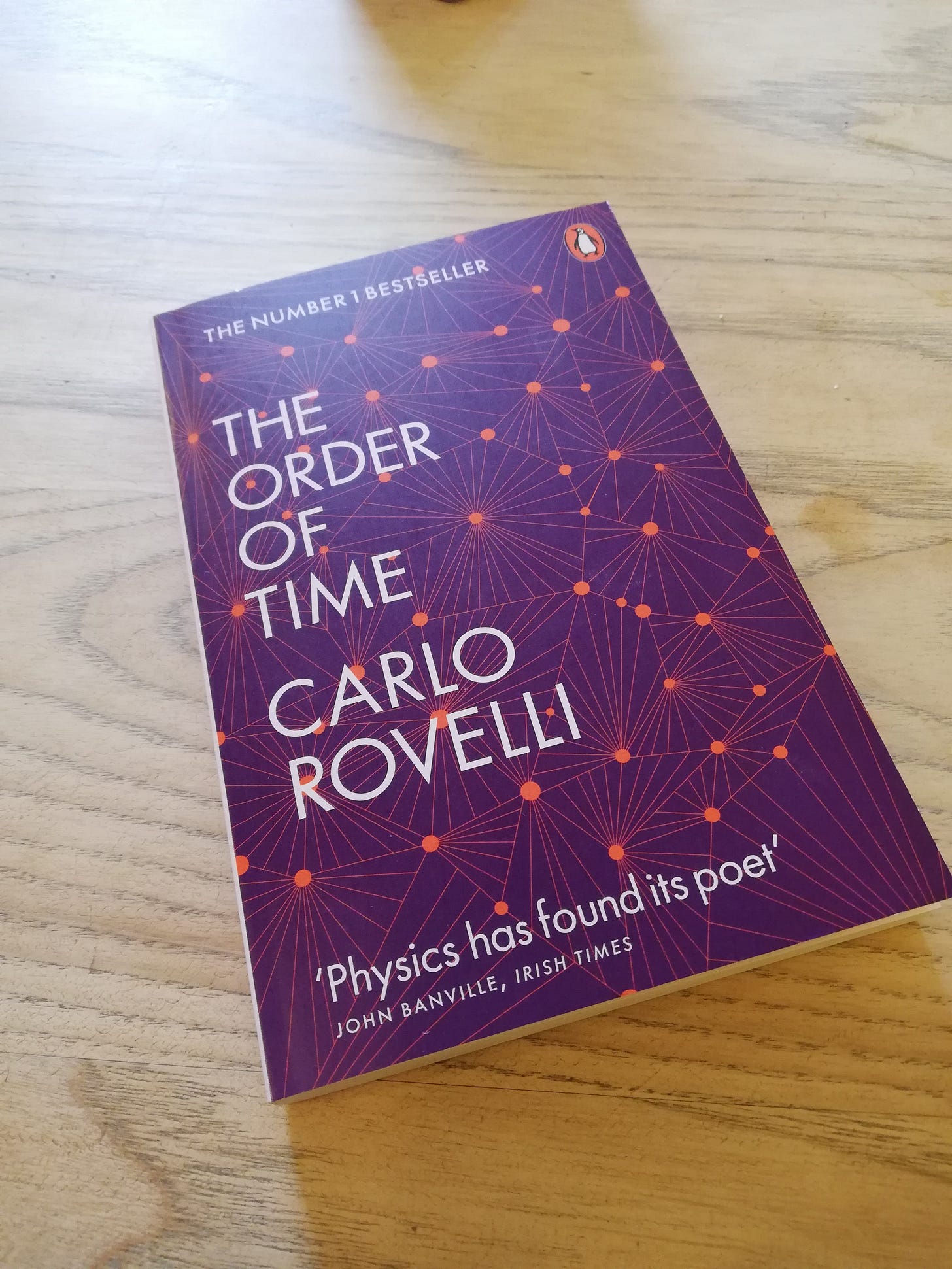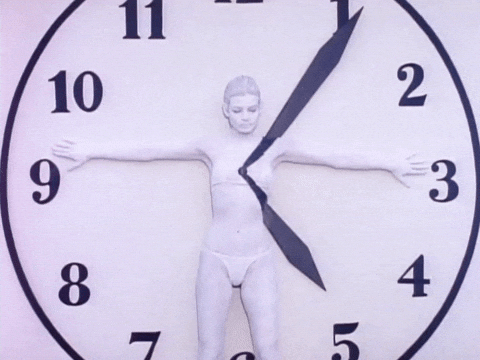
One of the well established (though not yet on the diagnostic criteria) executive function deficits present in the ADHD brain is time blindness (or time agnosia).
Time blindness is the inability to accurately perceive time. It manifests differently in different people but often looks like…
Struggling to judge how much time has passed or how long something will take
Being stuck in the present, with things feeling like they are now or never
Arriving late, or arriving mega early out of fear of being late
Here’s a research paper on the topic for all you fellow nerds out there.
But recently I can't stop thinking about this…
How is it possible to be blind to something that’s existence is defined in relation to our experience of it?
A weekend away with Carlo Rovelli
In February 2020 I treated myself to a solo weekend in Oxford. I spent two days doing whatever I felt like, whenever I felt like it (the BEST kind of holiday by the way, no need to adhere to time at all).
This whimsical jaunt led me into a book shop where I purchased Carlo Rovelli's 'The Order of Time'.
I'm not going to pretend I'm a physics expert because I read (okay.. three quarters read) one book about the physics of time. To be honest, physics is one of those subjects I find wildly fascinating but completely baffling.
But a message imprinted on my brain, and after my ADHD diagnosis I picked up the book again to try and make sense of how I experience time.
Rovelli's key message is this: The flowing passage of time is an illusion.
Time doesn’t exist (ish)
Rovelli isn’t saying that time doesn’t exist at all - more that it doesn’t exist in physics in the way that humans have conceptualised it in order to organise our lives.
In physics, time is actually like space. Every event has it’s own coordinates in space-time. Time is four dimensional and there’s no distinction between what is past, present, or future. Time passes relative to your own frame of reference (Einstein’s Theory of Relativity right there).
But humans have come to define time according to our experience of it - ‘we’ experience time linearly, which gives the illusion of a flowing "present."
Except, what about those of us who don’t experience time linearly?
What about ADHDers who, according to the paper I referenced above, struggle with…
Time estimation: being able to judge how much time has passed or how long something will take
Time sequencing: being able to remember a sequence of events or put things in a chronological order
Time reproduction: being able to recreate or match a specific time duration that was previously experienced
I strongly believe that non-linearity is at the core of the ADHD experience.
It’s what can make existing feel inherently overwhelming. It’s what makes us feel like we can perceive everything, everywhere, all at once. It’s what makes it difficult to figure out where to start, or in what order to do things.
If we are to accept that time passes relative to our frame of reference, maybe us ADHDers are the one’s who have it right? Maybe we experience time in accordance with it’s true nature.
While neurotypical brains have developed efficient filters to create the illusion of linear time (probably because it's rather useful!) Our brains refuse to play along with the charade. We experience time as it actually is - elastic, relative, and chaotic.
Lovely Rach but like, what am I supposed to do with this?
At the end of the day, we exist in a world that operates on linear time. We need to turn up to things on time and meet deadlines. Next time you’re 15 minutes late for a meeting I don’t think your boss wants to hear:
“Sorry Keith, my brain adheres to the definition of time as a multi-dimensional construct with no delineation between past, present or future.”
But maybe we can stop pathologizing our relationship with time, and start seeing it as as a different way of existing in the world.
And once you realise that the way you perceive and experience your inner and outer world is in a non-linear way, you open up a better understanding and ability to manage your life without constantly forcing yourself to operate in one straight line.
Here’s My Top Tips for Thriving in Your Non-Linear Reality:
🌀 Embrace Project Rotation Instead of forcing yourself to finish one thing before starting another, give yourself permission to have 3-5 projects on rotation. When your brain says "not this, that!" - listen to it.
🎯 Multiple Capture Systems Have notebooks, voice memos, phone notes, sticky notes everywhere. Your brilliant ideas don't follow a filing system, so don't force them into one.
🔄 The 15-Minute Rule Set a timer for 15 minutes and do whatever feels most urgent/interesting. When it goes off, reassess. You're not committing to hours, just the next quarter hour.
📅 Backwards Planning Start with the deadline and work backwards, but build in 2-3 different routes to get there. When one path gets blocked, you've got alternatives ready.
🔀 Batch the Chaos Group similar non-linear tasks together. Have a "creative chaos hour" where you brainstorm, doodle, research random things - all the bouncy brain stuff in one contained space.
Rachel Walker | ADHD Career & Life Coach | 📽️ Youtube | Work with me 👯 1:1 Coaching | Group Programme | Workshops & Speaking





